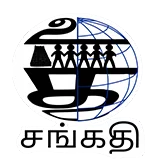Sri Lanka may reach a deal with investors to restructure its $ 12 billion in defaulted global bonds by mid-May, according to strategists at Standard Chartered.
The South Asian nation has been hoping to reach a deal in the next few weeks, though the first round of direct talks with dollar bondholders failed to yield a breakthrough. The remaining disagreements relate to the structure of ‘macro-linked’ bonds, an instrument proposed by bondholders whose payout would vary depending on the nation’s economic performance.
“We think timelines are critical and expect an agreement by mid-May,” strategists including Shankar Narayanaswamy wrote in a note.
Further delays would take the talks too close to the planned presidential elections, Standard Chartered said.
The nation’s dollar bonds were among top performers on Wednesday, with the March 2029 note advancing 2 cents to 56.4 cents per dollar. Bonds maturing in March 2030 and April 2028 also climbed.
“With bonds currently trading close to our current probability-adjusted recovery value under the Government’s proposal at 11% exit yields, we see possible upside to the bonds,” the strategists wrote.
At an exit yield of 11%, investors would stand to recover 56.1 cents on the dollar under the Government’s proposal, and 68.3 cents under the bondholder committee’s plan, Standard Chartered said. The overall recovery value will probably end up somewhere between those two figures, it said.
The Government will hold further consultations with International Monetary Fund staff on the latest proposals, said junior finance minister Shehan Semasinghe who is leading Sri Lanka’s delegation at the Spring Meetings in Washington.
Subsequently, local authorities hope to “continue discussions with the bondholders with a view to reaching common ground ahead of the IMF board consideration of the second review of Sri Lanka’s EFF programme,” Semasinghe said in a statement.
A deal with private investors is among the last steps in Sri Lanka’s plan to overhaul $ 27 billion of foreign debt, including bonds and loans. The restructuring is critical to ensure financing from the nation’s $ 3 billion IMF bailout keeps flowing. The Government has already struck deals with official creditors, including China, India and the Paris Club as well as with holders of its local debt.
Ukraine has been another nation with distressed debt to use GDP-linked warrants.

